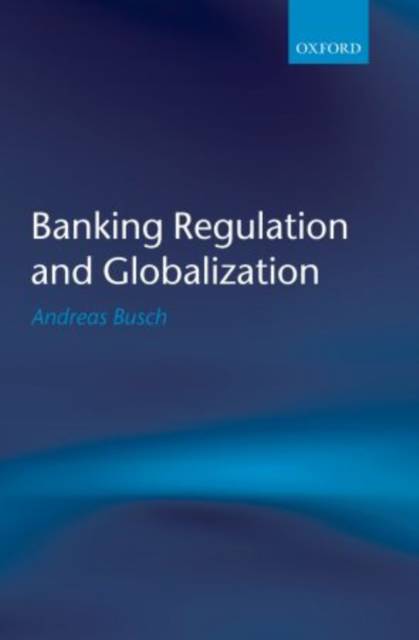
- Afhalen na 1 uur in een winkel met voorraad
- Gratis thuislevering in België vanaf € 30
- Ruim aanbod met 7 miljoen producten
- Afhalen na 1 uur in een winkel met voorraad
- Gratis thuislevering in België vanaf € 30
- Ruim aanbod met 7 miljoen producten
Zoeken
€ 106,45
+ 212 punten
Uitvoering
Omschrijving
Does globalization erode the nation state's capacity to act? Are nation states forced to change their policies even if this goes against the democratic will of their electorates? How does government action change under conditions of globalization? Questions like these have not only featured highly in political debates in recent years, but also in academic discourse. This book seeks to contribute to that debate. The general question it addresses is whether globalization leads to policy convergence -- a central, but contested topic in the debate, as theoretical arguments can be advanced both in favour of and against the likelihood of such a development. More specifically, the book contains detailed empirical case studies of four countries (the United States, the United Kingdom, Germany, and Switzerland) in a policy area where state action has been particularly challenged by the emergence of world-wide, around-the-clock financial markets in the last few decades, namely that of the regulation and supervision of the banking industry.
Based on careful analysis of historical developments, specific challenges, the character of policy networks and institutions, and their interaction in the political process, this book argues that nation states still possess considerable room for manouevre in pursuing their policies. Even if they choose supranational coordination and cooperation, their national institutional configurations still function as filters in the globalization process.
This book is of particular value to readers interested in the politics and policies of globalization, the interaction of business communities and the political system in different countries, and students of comparative politics interested in detailed case studies of policy-making.
Based on careful analysis of historical developments, specific challenges, the character of policy networks and institutions, and their interaction in the political process, this book argues that nation states still possess considerable room for manouevre in pursuing their policies. Even if they choose supranational coordination and cooperation, their national institutional configurations still function as filters in the globalization process.
This book is of particular value to readers interested in the politics and policies of globalization, the interaction of business communities and the political system in different countries, and students of comparative politics interested in detailed case studies of policy-making.
Specificaties
Betrokkenen
- Auteur(s):
- Uitgeverij:
Inhoud
- Aantal bladzijden:
- 304
- Taal:
- Engels
Eigenschappen
- Productcode (EAN):
- 9780199655571
- Verschijningsdatum:
- 12/12/2012
- Uitvoering:
- Paperback
- Formaat:
- Trade paperback (VS)
- Afmetingen:
- 156 mm x 234 mm
- Gewicht:
- 426 g

Alleen bij Standaard Boekhandel
+ 212 punten op je klantenkaart van Standaard Boekhandel
Beoordelingen
We publiceren alleen reviews die voldoen aan de voorwaarden voor reviews. Bekijk onze voorwaarden voor reviews.








